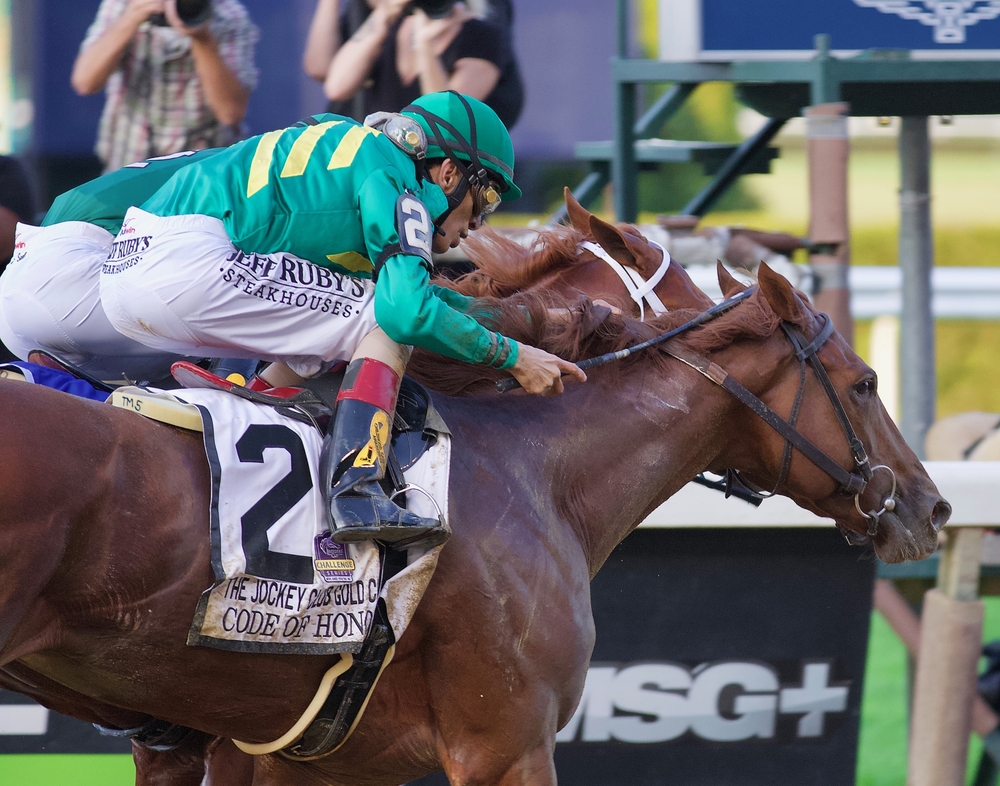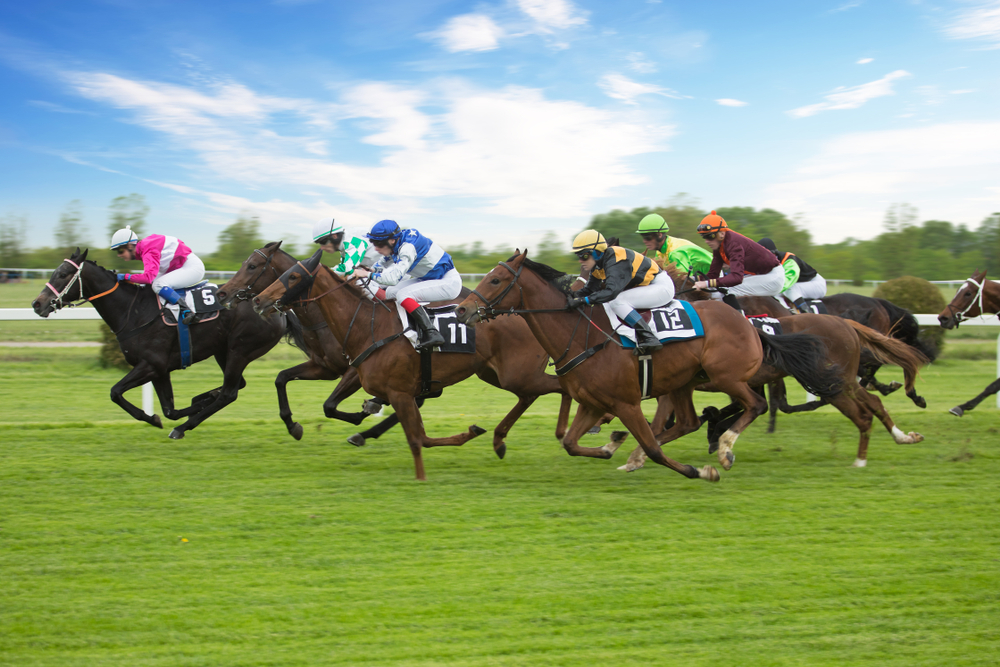Animal Rising is a protest group that campaigns against animal exploitation and cruelty. The group is known for its vocal opposition to horse racing, particularly the Grand National. The Grand National is a horse race that takes place annually in Aintree, Liverpool and is considered one of the most prestigious horse racing events in the world.
Animal Rising believes that horse racing is a cruel and inhumane sport that causes unnecessary suffering to horses. The group argues that horses are often pushed beyond their limits and subjected to dangerous conditions, which can result in injury and death. Animal Rising has been protesting against the Grand National for several years, and its members have been known to disrupt the event by staging sit-ins and demonstrations.
Who Are Animal Rising?
Animal Rising is a peaceful direct-action group that campaigns against animal exploitation and environmental destruction. The group was formerly known as Animal Rebellion but changed its name to move away from the umbrella of Extinction Rebellion.
Animal Rising believes that the use of animals for entertainment and profit is unjustifiable and that the current food system is unsustainable and unethical.
What Happened At the 2023 Grand National?
The 2023 Grand National was marred by protests from Animal Rising, who were calling for an end to horse racing. The group staged a peaceful protest outside Aintree Racecourse and attempted to disrupt the event with direct-action tactics. The protest was met with a heavy police presence, and several activists were arrested.
What Are Animal Rising Planning For 2023?
Animal Rising has announced that it plans to continue its campaign against horse racing in 2023. The group is calling for a ban on the use of horses in racing and for the closure of all racecourses in the UK.
Animal Rising believes that the use of horses in racing is cruel and unnecessary and that the industry is responsible for the deaths of thousands of horses each year.
The group is planning a series of protests and direct actions throughout the year to raise awareness of the issue and put pressure on the government to take action.
Horse Racing Industry Overview
History of Horse Racing
Horse racing has been a popular sport for centuries, with evidence of horse racing dating back to ancient civilizations such as Greece, Rome, and Egypt. In the UK, horse racing has a long history, with the first recorded race taking place in the early 1700s. Since then, horse racing has become a significant industry, with races taking place all over the world.
Current State of the Horse Racing Industry
Today, horse racing is a multi-billion pound industry, with races taking place all over the world. The industry is split into two main categories: flat racing and jump racing.
Flat racing involves horses running on a flat course, while jump racing involves horses jumping over fences and hurdles.
Despite its popularity, the horse racing industry has come under scrutiny in recent years due to concerns about animal welfare. Critics argue that the industry is cruel to horses, with many horses being injured or killed during races.
Economic Impact of Horse Racing
The horse racing industry is a significant contributor to the UK economy, with the industry generating billions of pounds in revenue each year.
According to a report by the British Horseracing Authority, the industry is responsible for over 17,000 jobs and contributes over £3.7 billion to the UK economy each year. In addition to its economic impact, the horse racing industry also has a significant cultural impact, with races such as the Grand National and the Derby attracting millions of viewers each year.
While the horse racing industry has faced criticism in recent years, it remains a significant part of the UK economy and culture.
Animal Welfare Concerns
Animal welfare concerns have been raised by animal rights activists and welfare organizations regarding the treatment of horses in the horse racing industry. Here are some of the key concerns:
Injuries and Fatalities of Horses
Racing exposes horses to a significant risk of injury and sometimes, catastrophic injury and death through trauma (e.g. broken neck) or emergency euthanasia. The odds are stacked against horses in the racing industry. Research in Victoria into the risk of death in flat horse racing found that the risk of a horse dying in a race was 1 in 1,000 starts. This risk increases to 1 in 100 for jumps racing. The Grand National, in particular, has a high rate of fatalities, with an average of two horses dying each year over the past decade.
Drug Use
Drug use is also a concern in the horse racing industry. Horses are often given drugs to enhance their performance, mask pain or injury, or calm them down. These drugs can have serious side effects and can be harmful to the horses. Some drugs are banned in horse racing, but there are concerns that some trainers and owners continue to use them illegally.
Retirement and Slaughter of Horses
Retirement and slaughter of horses is another concern in the horse racing industry. Many horses are retired from racing due to injury or declining performance. There are concerns that some of these horses are sent to slaughterhouses or sold to dealers who may sell them to slaughterhouses. There are also concerns about the welfare of retired racehorses who are not well cared for or may be abandoned.
Animal welfare concerns with horse racing have been raised by many animal rights activists and welfare organizations. While efforts have been made to address these concerns, there is still much work to be done to ensure the welfare of horses in the horse racing industry.
How Do Industry Insiders Feel About Animal Rising?
Despite the growing protests by Animal Rising against horse racing, industry insiders have mixed feelings about the movement. Some believe that Animal Rising’s concerns are valid and that the industry needs to take steps to address animal welfare issues. Others, however, see the protests as misguided and argue that the industry is already doing everything it can to ensure the safety and well-being of the horses.
One of the main arguments put forward by those in the industry is that horse racing is a sport that has been around for centuries and has a long tradition. They argue that the horses are well-cared for and that the industry has made significant improvements in recent years to ensure their welfare. They also point to the economic benefits of horse racing, which generates significant revenue and provides jobs for thousands of people.
However, Animal Rising argues that the industry is not doing enough to protect the horses and that profit is being put before animal welfare. They claim that horses are being pushed too hard, that they are being drugged to mask injuries, and that they are being sent to slaughterhouses when they are no longer profitable. Animal Rising also claims that the industry is not transparent enough and that there is a lack of accountability when things go wrong.
Despite the differing opinions, there are signs that the industry is taking the protests seriously. In recent years, there have been efforts to improve the welfare of horses, including introducing new regulations and guidelines. Some tracks have also implemented new safety measures, such as the use of synthetic tracks, which are believed to be safer for the horses.
Overall, the debate around horse racing and animal welfare is complex and multifaceted. While there are valid concerns on both sides, it is clear that the industry needs to continue to take steps to ensure that the welfare of the horses is a top priority.
Conclusion
Animal Rising is a peaceful movement that aims to stop harm to animals, particularly in the food system. The group is protesting against horse racing due to concerns about the welfare of the horses involved. They argue that the sport is cruel and inhumane and that horses are often forced to race despite being injured or ill.
Animal Rising’s protests have received mixed reactions from the public, with some people supporting their cause and others criticising their methods. While there is no doubt that horse racing can be dangerous for both horses and jockeys, many people argue that it is a legitimate sport with a long history and cultural significance.
Ultimately, the question of whether horse racing should be allowed to continue is a complex and contentious one. It is clear, however, that Animal Rising’s protests have brought attention to the issue and sparked an important conversation about the welfare of animals in sport.





